AGU23
Join us at the annual meeting of the American Geophysical Union (AGU)
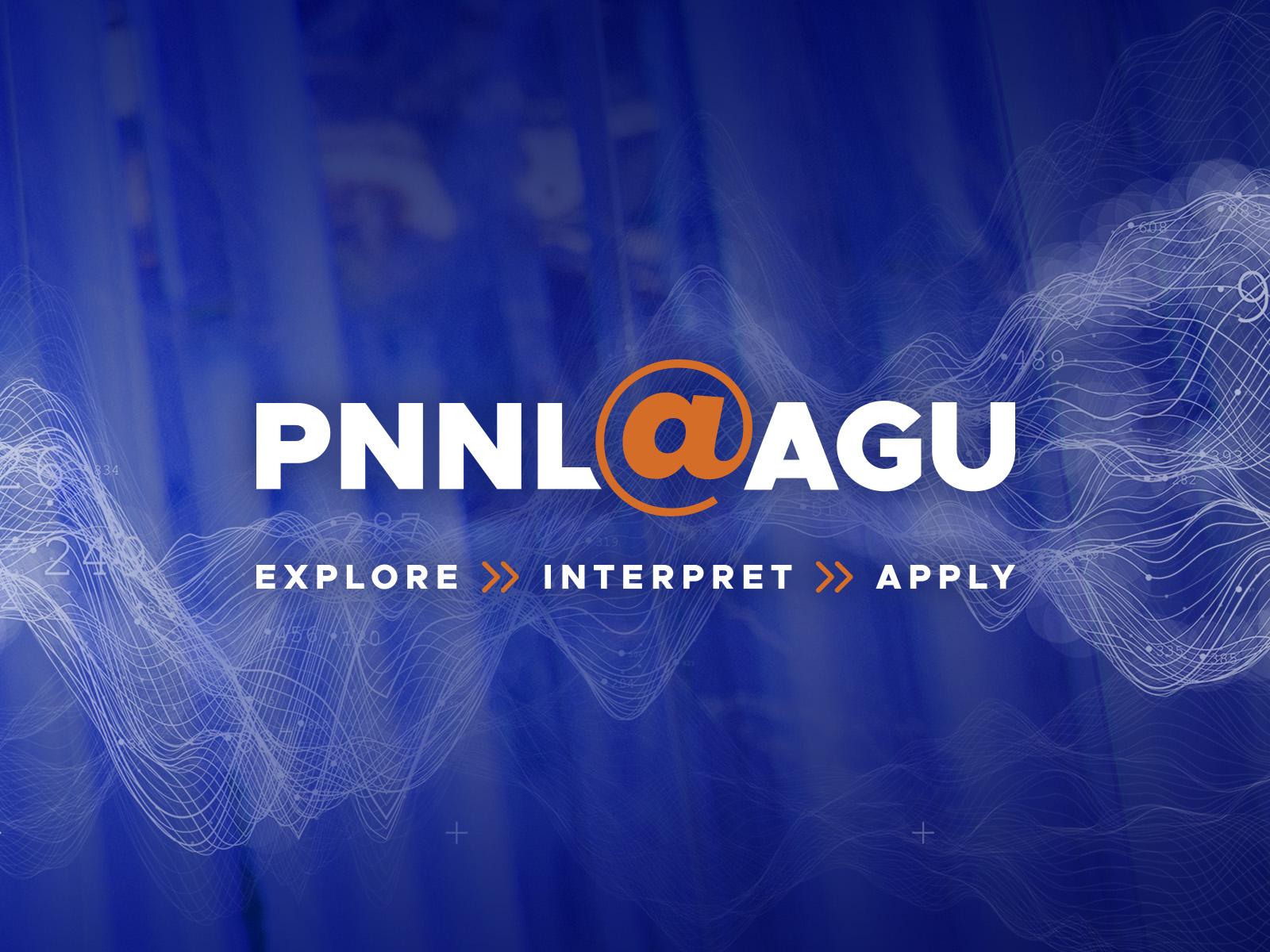
San Francisco
The 2023 American Geophysical Union (AGU) Fall Meeting will feature the latest findings of more than 150 researchers from Pacific Northwest National Laboratory (PNNL). Click the navigation links below or scroll this page to learn more about some of the presenters and their science, related announcements and feature stories, opportunities to connect with us at the event, and current job opportunities.
ACTIVITIES | In the NewS | SESSIONs | Career OPPORTUNITIES
Activities
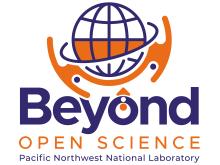
Find out more about projects like WHONDRS, EXCHANGE, and MONet—all built for collaborative contribution and access to data in a Beyond Open Science design.
Meet PNNL engineers, scientists, researchers, and managers who can tell you what it's like working at a national laboratory.
Stop by the exhibit booths for the Atmospheric Radiation Measurement and the Environmental Molecular Science Laboratory—booths 614 and 515—to learn about research with global involvement and impact. These Department of Energy user facilities are managed by PNNL and bring together the capabilities of multiple national laboratories and university collaborators for exciting scientific breakthroughs.
Consider the impacts of climate on national security. Learn what PNNL has organized at AGU.
In the News
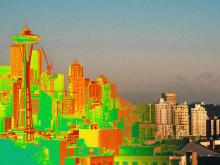 | Supercharged Heat Waves Like Washington’s Deadliest Will Strike Harder and More Often; New Study Reveals HowA warmer sea surface and shifting wind patterns will supercharge heat waves throughout the Pacific Northwest. Read more. |
USA Today: Climate Change Effects in WinterPNNL Earth Scientist and Battelle Fellow L. Ruby Leung shares insight regarding risks associated with two or more extreme events – known as compound events – occurring together in the same region. Read more. | |
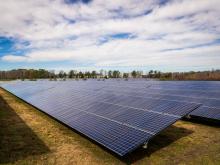 | “Energy Droughts” in Wind and Solar Can Last Nearly a Week, Research ShowsUnderstanding the risk of compound energy droughts—times when the sun doesn’t shine and the wind doesn’t blow—will help grid planners understand where energy storage is needed most. Read more. |
 | Tebaldi Named AGU FellowClaudia Tebaldi, an Earth scientist at PNNL, was named an AGU Fellow. She was recognized for outstanding contributions in statistics and climate science and will be honored at AGU23. AGU Fellows are recognized for their outstanding achievements and contributions to Earth and space science. The distinction is awarded for “remarkable innovation and/or sustained scientific impact.” AGU Fellows provide leadership across different geosciences fields. Read more. |
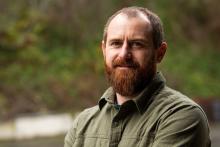 | Ward Receives AGU HonorNick Ward, an Earth scientist at the PNNL-Sequim campus, has been awarded the 2023 Thomas Hilker Early Career Award for Excellence in Biogeosciences by AGU. He was recognized in part for creatively and broadly deepening the understanding of carbon cycling processes. He has tracked carbon from the atmosphere through land, rivers (including the Amazon), and the ocean. Ward will be recognized at AGU23. Read more. |
Featured PNNL Sessions
Over 150 PNNL researchers are presenting—in person and virtually—at the largest international Earth science conference. Results from studies across several fields, including atmospheric science, coastal and marine research, Earth modeling, and decarbonization, will be shared. Below are select presentations and activities to note out of many.
View all PNNL presenters
Fifth National Climate Assessment (NCA5)
PNNL Contributions
- SY23B-0864 Chapter 3 - Earth Systems Processes - The Fifth National Climate Assessment – a poster by L. Ruby Leung, Tuesday, December 12, 2:10 p.m. – 5:30 p.m. PST, Location: Poster Hall A-C - South
- SY23B-0866 Chapter 5 - Energy Supply, Delivery, and Demand - The Fifth National Climate Assessment – a poster by Nathalie Voisin, Tuesday, December 12, 2:10 p.m. – 5:30 p.m. PST, Location: Poster Hall A-C - South
Climate Impacts on National Security
PNNL scientists have organized an AGU scientific session on the impacts of climate change on national security. What are the risks of long-dormant microbes in thawing permafrost? How will crop production change as temperatures rise, and who will be hungry? If shading the planet through geo-engineering becomes feasible, who will be the winners and who might be the losers?
There are two events Tuesday, Dec. 12. The scientific session will be 10:20 to 11:50 a.m. in 2006 – West (Level 2 West, MC). There’s also a town hall, pulled together by PNNL and NSF officials and others, from 6:30 to 7:30 p.m. that same day in 2007 – West (Level 2 West, MC).
Speakers include:
- Jill Brandenberger, the leader of PNNL’s efforts in climate and national security and an organizer of a recent workshop on pathogens and permafrost. Jill works closely with officials at the Department of Defense and other organizations and has a broad perspective on “climate and national security,” from the risks of thawing microbes to the effects of increased heat on soldiers, to the impact of decarbonization and powerful hurricanes on defense bases. Jill is an organizer of the town hall.
- Brian O’Neill, a member of the National Academies’ Climate Security Roundtable and a convening lead author of the IPCC’s 6th assessment report. Brian notes that many factors unrelated directly to climate, such as poverty, income, and education, will influence how climate change affects us. In this comment in Nature Climate Change earlier this year, he noted that the assumption that the future will be worse than the present due to climate change may be incorrect. Brian is the lead convener of the scientific session.
- Ben Kravitz of Indiana University (with a joint appointment at PNNL), who will speak about the prospects of geoengineering, particularly solar geoengineering, on national security and future climate.
- Stephanie Waldhoff will be speaking about food security and vulnerability as the climate changes. She notes that climate is not the only variable to consider when it comes to food – other factors like future income, education and land use changes have a big effect. She is finding that in some areas of the world, food availability is likely to improve, while in other areas, large segments of the population may struggle.
Beyond Open Science
Demonstrating Open Science Principles
- B11K-1914: Integration of Machine Learning and ICON Science to Understand River Sediment Respiration at the Continental Scale – a poster presented by Tim Scheibe, Monday, December 11, 8:30 a.m. – 12:50 p.m. PST, Location: Poster Hall A-C - South
- H31X-1837 Variable Inundation Among Earth's Terrestrial Ecosystems – a poster presented by James Stegen, Wednesday, December 13, 8:30 a.m. – 12:50 p.m. PST, Location: Poster Hall A-C - South
- B33J-2366 First Year of the CONUS-Scale Molecular Observation Network (MONet) for Advanced Ecosystem Modeling – a poster presented by John Bargar, Wednesday, December 13, 2:10 p.m. – 6:30 p.m. PST, Location: Poster Hall A-C - South
- B33J-2371 Molecular Observation Network (MONet) Community Engagement and Data Accessibility – a poster presented by Qian Zhao, Wednesday, December 13, 2:10 p.m. – 6:30 p.m. PST, Location: Poster Hall A-C - South
- B53E-1931 A Functional Microbiome Catalog Crowdsourced from North American Rivers – a poster presented by James Stegen, Friday, December 15, 2:10 p.m. – 6:30 p.m. PST, Location: Poster Hall A-C - South
- INV53A-02 Making Open Science Meaningful through ICON: An AI River Corridor Use Case for Stakeholder Engagement throughout the Research Lifecycle – a presentation by Amy Goldman, Friday, December 15, 2:30 p.m. – 2:42 p.m. PST, Location: 159 - South
A selection of talks and posters
Monday, December 11
GC11K-0958 Compound Energy Droughts in the Western United States Under Decarbonization
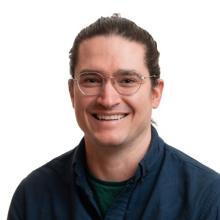
Session: 8:30 a.m. – 12:50 p.m. PST, Location: Poster Hall A-C - South
PNNL Presenter: Cameron Bracken
Summary: Decarbonization of the grid by 2050 will require a substantial buildout of wind and solar generation in the Unites States. Increased reliance on these renewables brings with it increased risk of weather driven shortages, known as energy droughts. READ MORE.
B11C-05 Alternating Salt and Freshwater Floods of Upland Coastal Soils Damage Soil Structure Changing its Hydraulic Properties
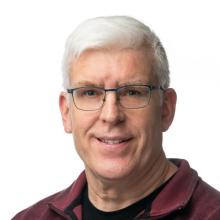
Session: 9:10 – 9:20 a.m. PST, Location: 3007 - West
PNNL Presenter: Kenton Rod
Summary: Coastal soils are increasingly impacted by hydrologic intensification in the form of rising ocean waters and floods from storm surges and precipitation. This generates shifts in pore water chemistry from freshwater to saltwater in addition to changes in redox state. READ MORE.
Tuesday, December 12
GC21L-1092 Marine Renewable Energy Resource Characterization and Assessment for Powering the Blue Economy

Session: 8:30 a.m. – 12:50 p.m. PST, Location: Poster Hall A-C - South
PNNL Presenter: Zhaoqing Yang
Summary: Marine renewable energy, which includes renewable energy harvested from ocean waves, tidal streams, ocean currents, and salinity and thermal gradients, can contribute significantly to the nation’s renewable energy portfolio to transition to a net-zero carbon, resilient, and secure energy future. READ MORE.
SY21C-0836 Building Energy Codes: Strategies for Resilience

Session: 8:30 a.m. – 12:50 p.m. PST, Location: Poster Hall A-C - South
PNNL Presenter: Meredydd Evans
Summary: Building energy codes have traditionally played a major role in optimizing energy efficiency in buildings. With the growth of extreme weather paired with long-duration power outages, regulators are increasingly considering if building energy codes could support climate resilience. READ MORE.
GC22B-06 Analyzing the Distributional Impacts of Global Change on Food Access and Availability in a Multi-Sector Dynamics, Human-Earth System Model

Session: 11:12 – 11:22 a.m. PST, Location: 2006 - West
PNNL Presenter: Stephanie Waldhoff
Summary: Changes in both human and physical systems will impact global food access and availability. These impacts will occur unevenly, both across and within countries. Understanding the implications of changes in the climate system, trade patterns, and economic and demographic characteristics on global and local food systems is key to evaluating human well-being. READ MORE.
GC23D-01 Emulators of Climate Model Output, Integrated Modeling, and Scenarios Accounting for Climate Impacts

Session: 11:12 – 11:22 a.m. PST, Location: 2006 - West
PNNL Presenter: Claudia Tebaldi
Summary: Changes in both human and physical systems will impact global food access and availability. These impacts will occur unevenly, both across and within countries. Understanding the implications of changes in the climate system, trade patterns, and economic and demographic characteristics on global and local food systems is key to evaluating human well-being. READ MORE.
Wednesday, December 13
GC33D-1200 PNNL's Grid Operations, Decarbonization, Environmental and Energy Equity Platform (GODEEEP): Advances in Climate-to-Grid Integration in Support of Energy Transitions
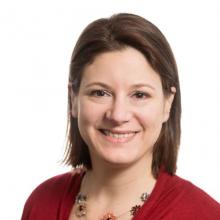
Session: 2:10 – 5:30 p.m. PST, Location: Poster Hall A-C - South
PNNL Presenter: Nathalie Voisin
Summary: The consequences of climate change are expected to dramatically change the way we plan our electricity infrastructure, but utilities do not have accessible, consistent, holistic power-system relevant climate datasets that align with the actionable needs of power system planners. We present a novel end-to-end modeling toolchain and analytical capabilities that link climate science to power grid long term planning, including implications for equity research. READ MORE.
A34B-09 Toward Credible Predictions of Aerosol-Cloud Interactions in Earth System Models
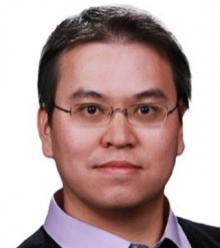
Session: 5:20 – 5:30 p.m. PST, Location: 3004 - West
PNNL Presenter: Po-Lun Ma
Summary: The role of aerosol-cloud interactions in the Earth system is a major source of uncertainty in projections of Earth’s future climate and in interpreting how the climate has evolved in the past. READ MORE.
Thursday, December 14
SY42A-04 Exploring Socioeconomic and Natural Resource Constraints on Electricity System Capacity Expansion Under Decarbonization in the United States
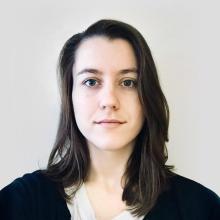
Session: 10:50 – 11:00 a.m. PST, Location: 2018 - West
PNNL Presenter: Kendall Mongird
Summary: Transition to net-zero economies and associated expansion and decarbonization of the electric grid necessitates careful consideration of the impacts on the communities and environment where the new power capacity is located. Modeling efforts that incorporate these impacts can strengthen our understanding of complex trade-offs and opportunities and provide multisectoral insight towards decarbonization planning. READ MORE.
A431-01 Modeling Extreme Events and their Future Changes (Invited)
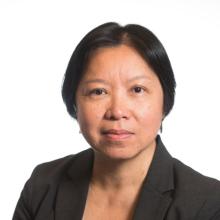
Session: 2:10 – 2:20 p.m. PST, Location: 3014 - West
PNNL Presenter: L. Ruby Leung
Summary: Some of the most consequential outcomes of global warming for societies and ecosystems are changes in extreme events. Using a hierarchy of different modeling approaches, we investigate how mesoscale convective systems, atmospheric rivers, and hurricanes may respond to global warming and connect future storm changes to changes in the storm environments. READ MORE.
H43F-2146 How Might Historical Record Droughts in Texas Evolve and Impact Water Resources in a Warming Future?

Session: 2:10 p.m. – 6:30 p.m. PST, Location: Poster Hall A-C - South
PNNL Presenter: Lili Yao
Summary: The Colorado River Basin in Texas underwent a prolonged dry spell from 2008 to 2015, with record meteorological drought in 2011 coinciding with record summer heatwaves, producing severe impacts to agriculture, surface water resources, and the environment. Climate warming is projected to intensify extreme drought and compound dry-hot conditions, underscoring the need for water resource management strategies to consider these risks. READ MORE.
NH43A-01 AI-Ready Benchmark Data Inventory of US Wildfires, Heatwaves, and Droughts

Session: 2:12 – 2:22 p.m. PST, Location: 2010 - West
PNNL Presenter: Xinming Lin
Summary: Extreme weather events, such as fires, heatwaves, and droughts, result in significant impacts on Earth, environmental, and power systems. Mechanistic and predictive understanding, as well as probabilistic risk assessment of these extreme weather events are crucial for detecting, planning for, and responding to these extremes. READ MORE.
Friday, December 15
GC51C-06 Identifying Thresholds for the Influence of Wildfire Burn Area and Severity on River Corridor Biogeochemistry
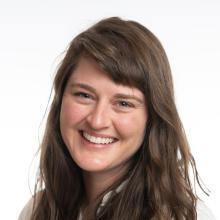
Session: 9:45 – 10:00 a.m. PST, Location: 2018 - West
PNNL Presenter: Allison Myers-Pigg
Summary: Wildfires influence the transport of biogeochemically reactive elements through ecosystems by altering vegetation cover, soil permeability, and other features of the terrestrial ecosystem, which cumulatively impact hydrologic connectivity to river corridors. READ MORE.
Career Opportunities at PNNL
Want to join the PNNL team? Check out some of our open positions in: